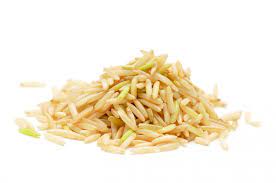The Power of Rice Protein: The Benefits for Your Health and Fitness
What is rice protein? Brief overview of the rising popularity of plant-based protein sources.Why rice protein stands out as a valuable alternative.
Rice Protein

What is rice protein?
Rice protein is a plant-based protein derived from rice. It is extracted from rice grains using various methods, resulting in a powder that is rich in protein.
Nutritional profile of rice protein
Rice protein is a complete protein source, containing all essential amino acids required by the body. It is comparable to other popular protein sources like whey and soy protein. Additionally, rice protein is low in fat and cholesterol, making it a healthy choice for individuals looking to incorporate protein into their diet.
Health benefits of rice protein
Rice protein offers several health benefits:
Promotes muscle growth and recovery: The amino acids in rice protein support muscle repair and growth, making it ideal for athletes and fitness enthusiasts.
Supports weight management and satiety: Rice protein can help control appetite and promote feelings of fullness, aiding in weight loss or maintenance.
Enhances heart health and reduces cholesterol levels: The low fat and cholesterol content of rice protein can contribute to a healthy heart.
Assists in regulating blood sugar levels: Rice protein has a low glycemic index, helping to stabilize blood sugar levels.
Boosts immune function and overall well-being: The vitamins and minerals present in rice protein support a healthy immune system and overall well-being.
Incorporating Rice Protein into Your Diet
Rice protein for athletes and fitness enthusiasts
Rice protein can be beneficial for athletes and fitness enthusiasts. It can be consumed as a pre-or post-workout supplement to support muscle growth and recovery. The recommended timing and dosage may vary depending on individual needs and goals. Incorporating rice protein into a balanced diet can enhance exercise routines and overall fitness performance.
Rice protein for vegans and vegetarians
Rice protein is an excellent choice for vegans and vegetarians as it provides a high-quality plant-based protein source. It helps meet protein requirements on a plant-based diet and can be combined with other protein sources like legumes and nuts for complete nutrition. Rice protein dispels common misconceptions about plant-based protein, showcasing its efficacy and benefits.
Rice protein for weight management
Rice protein can support weight management goals. Its high protein content promotes satiety, reducing cravings and aiding in weight loss. Incorporating rice protein into balanced meals and snacks can help achieve a healthy weight. Its long-term sustainability makes it a suitable option for maintaining weight loss and overall well-being.
Rice protein for general health and well-being
Rice protein is a versatile option for promoting general health and well-being. It can be used to supplement overall nutrition, providing essential vitamins and minerals. Additionally, rice protein may have potential benefits for specific health conditions, although further research is needed. Recommended intake guidelines for different age groups can help individuals incorporate rice protein into their diet effectively.
FAQs
Is rice protein suitable for individuals with allergies or intolerances?
Rice protein is generally well-tolerated and does not contain common allergens like gluten or lactose. It can be a suitable alternative for individuals with gluten intolerance or celiac disease. However, it is always recommended to check product labels for any potential cross-contamination or specific dietary restrictions.
Can rice protein be used as a meal replacement?
Rice protein can be used as a component of a balanced meal replacement plan. However, it is important to note that a complete meal replacement should provide a wide range of nutrients, including carbohydrates, fats, and fiber, in addition to protein. Rice protein can contribute to the protein content of a meal replacement, but it is advisable to consult with a healthcare professional or registered dietitian to ensure that all nutritional needs are being met.
Is rice protein safe for children and older adults?
Rice protein can be safely consumed by children and older adults, but it is important to consider individual nutritional needs. Children may have different protein requirements based on their age and growth stage, while older adults may have specific dietary considerations. Consulting with a healthcare professional or registered dietitian can help determine the appropriate amount of rice protein for these age groups.
Does rice protein have any potential side effects?
Rice protein is generally well-tolerated by most individuals. However, some people may experience digestive issues or bloating due to individual sensitivities. It is recommended to start with a smaller serving size and gradually increase the amount to assess personal tolerance. Additionally, factors such as overall diet, hydration, and digestion can influence individual reactions to rice protein.
Conclusion
Rice protein is a valuable alternative for individuals seeking a plant-based protein source. Its nutritional profile, health benefits, and versatility make it suitable for athletes, vegans, individuals managing their weight, and those looking to support their overall health and well-being. By understanding the benefits and incorporating rice protein into their diet, individuals can harness the power of this protein source to optimize their health and fitness goals.




